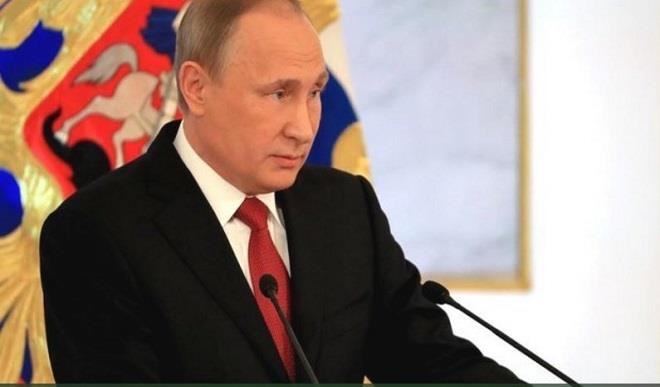Russian government resigns ahead constitutional reform
All members of the Russian government have resigned on Wednesday as part of sweeping constitutional changes in the country. Experts say this move could see President Vladimir Putin extend his hold on power. Prime Minister Dmitry Medvedev, who tendered his resignation to Putin, will be appointed the new deputy head of Russia’s influential Security Council. […]

President of Russia, Vladimir Putin
All members of the Russian government have resigned on Wednesday as part of sweeping constitutional changes in the country.
Experts say this move could see President Vladimir Putin extend his hold on power.
Prime Minister Dmitry Medvedev, who tendered his resignation to Putin, will be appointed the new deputy head of Russia’s influential Security Council. He had been the PM for eight years.
Hours after the government resigned, Putin named federal tax chief Mikhail Mishustin, 53 years old and a relatively unknown technocrat, as the new prime minister.
Mishustin will face a vote of approval in the lower house of parliament on Thursday, the RIA news agency reported.
The shakeup sent shock waves through Russia’s political elites, who were left pondering what Putin’s intentions were and speculating about future cabinet appointments.
Putin, in his annual address to parliament, proposed a referendum on amending Russia’s constitution to increase the powers of parliament – while maintaining a strong presidential system.
“I consider it necessary to conduct a vote by the country’s citizens on an entire package of proposed amendments to the country’s constitution,” Putin said, without specifying a date for a referendum.
He suggested amending the constitution to allow lawmakers to name prime ministers and cabinet members.
The president currently holds the authority to make those appointments.
“It will increase the role of parliament and parliamentary parties, powers and independence of the prime minister and all cabinet members,” Putin said.
“We will be able to build a strong prosperous Russia only on the basis of respect for public opinion.
“Together we will certainly change life for the better.”
The role of governors would also be enhanced, he said, though Russia would maintain its presidential system.
“Russia must remain a strong presidential republic.”
He also said he wanted to tighten the criteria for anyone wanting to become president, insisting that anyone wishing to become president must have lived in Russia for the past 25 years.
